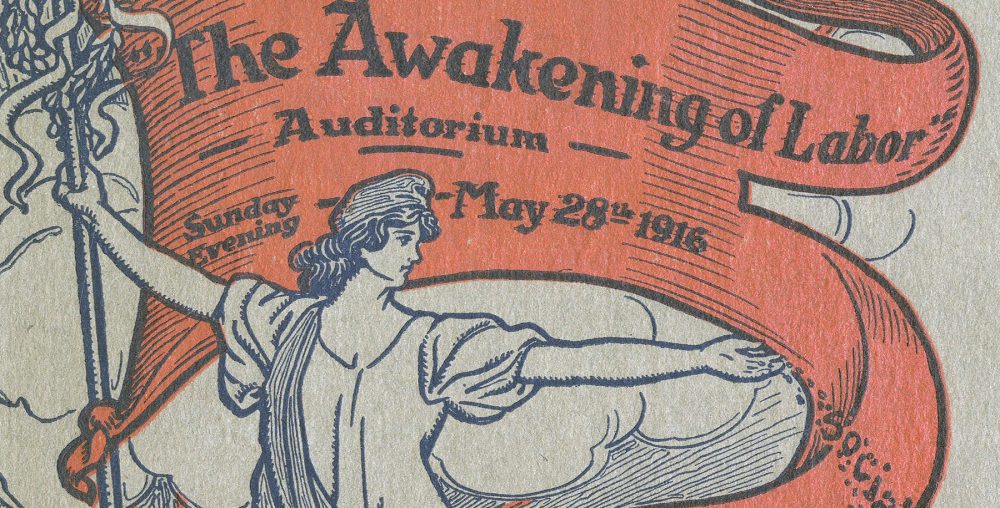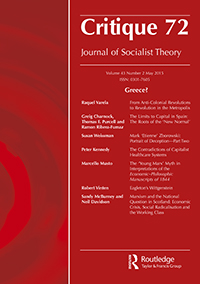 Last week the ‘Financial Times‘ revealed that the Tory Government is working with big business on plans to tear up those workers’ rights enshrined in EU law. This would include ending the 48-hour limit on the working week; changing rules on work breaks and ending the inclusion of overtime pay in holiday entitlements. This is the list reported but there are undoubtedly others.
Last week the ‘Financial Times‘ revealed that the Tory Government is working with big business on plans to tear up those workers’ rights enshrined in EU law. This would include ending the 48-hour limit on the working week; changing rules on work breaks and ending the inclusion of overtime pay in holiday entitlements. This is the list reported but there are undoubtedly others.
That this was one purpose of Brexit and its likely effect was both predictable and predicted, it comes as a surprise to no one. Yet large swathes of the Left in Ireland and Britain supported it, although much less vocally in Ireland because it is so unpopular. In any case their support for it has assisted putting in place these projected attacks and is indefensible and inexcusable.
An analysis of why they took such a position would have to look at such things as an originally opportunist position becoming hard-wired into their politics; their nationalist perspective arising from the view that the nation state will introduce socialism and come to embody it; general simple-minded opposition to the EU on the shallow grounds that it is a creature of capitalism, and the strong tendency to have a more concrete idea of what you are against than what you are for. There’s also a large dose of ignorance and stupidity involved.
The significant role of stupidity first hit me when I read that left supporters of Brexit were complaining that the negotiations on the British side were being conducted by the Tories. Further examples became clear when they, like the rest of the Brexit movement, demanded a harder Brexit as the only one worthy of the name, and for the same reason – there was no point otherwise.
Now that even a blind man can see what the future invites, what are the chances that this left will reconsider its support for Brexit and the political approach that led to it? What might this involve?
Well, much of this left also supports Scottish nationalism, which perhaps should be no surprise since this too involves an obviously nationalist project that harbours illusions in a separate capitalist state.
In the weekend’s ‘Irish Times’ Fintan O’Toole has a long article on Scottish nationalism that is quite good. It notes that in 1979 the referendum on devolution and creation of a new Scottish parliament couldn’t even get 40 per cent of the Scottish electorate to support it. Now opinion polls show majority support for independence. O’Toole looks for reasons for the change.
The first is the decline of the Empire that Scots played such a prominent and profitable role in creating, before it shrunk to the extent that many middle class Scots saw potential for better career opportunities in a separate state. Some on the Left present this opportunist turn as some sort of anti-imperialism. That some Irish accept this is where another heavy dose of stupidity comes in, although again, a common nationalist outlook is a more adequate political explanation.
The second reason is the growth of the idea that Scotland is more progressive than England (Wales hardly ever gets a mention), an idea O’Toole correctly describes as a ‘myth’. This is traced to the idea that Thatcher and her policies came to be seen as an imposition on the country from outside rather than as a class-based assault on the whole British working class.
This isn’t really an explanation, more an outcome – why did Thatcherism come to be seen as a rallying cry for Scottish nationalism and not British working class struggle? The venom of nationalism is now so prevalent in the bloodstream that even when English and Welsh workers try to move to the left, through the Jeremy Corbyn leadership of the Labour Party, the Scottish left prefers its own nationalism and opposes it.
O’Toole notes the mass opposition of 70,000 Celtic and Dundee United fans during Thatcher’s attendance at the Scottish cup final in 1988. Many Celtic fans, traditionally a base of support for the Labour Party, are now ardent nationalists. Again, their existing (partial) identity with Irish nationalism assisted the switch, although with just as little justification.
O’Toole notes that the Scottish National Party tacked to the left in order to garner support from those opposed to Thatcherism, but Scottish nationalism is not a complement to Celtic supporters’ residual Irish identity but a dilution of it, if not a rival. Recent criticism by the SNP government of the actions of Celtic Football club and praise for Rangers may mainly be a piece of opportunist tacking to a part of the electorate it hasn’t had success with, but it is also politically consistent with any idea of Scottish nationalism.
What O’Toole doesn’t cover is the employment of constitutional solutions by the Labour Party to cover up for its hostility to a militant class opposition to Thatcherism. Ultimately this played into the hands of the more aggressive nationalists, but then the Scottish Labour Party was even more venal and rotten than the rest of the party.
The third reason advanced by O’Toole is that Scottish nationalism is very much bolstered by the rise of English nationalism. How else, for example, can you account for the popularity of the SNP Government’s handling of Covid-19 as opposed to widespread criticism of the Tories? Objectively, the differences are much less than the similarities and both have a very poor record in terms of deaths, making the same mistake of seeding care homes with infected discharges from hospitals.
The Tories have repeatedly used the rise of Scottish nationalism to attack the Labour Party, which plays very well for the SNP. It can hardly be a surprise that nationalist division encourages divisive nationalism. Yet this too seems to have escaped much of the British left, which supports Scottish nationalism but deplores English nationalism, except for the most degenerate Stalinist section that is now buying into it.
Why do they not get that the former has helped the latter? Why do those who did oppose Brexit not see the parallels with Scottish nationalism, both movements championing the magical powers of ‘national sovereignty’? Did they really miss the absence of a Scottish component of the Corbyn movement, the potential base of which had already been partially vaccinated against left politics by nationalism? Do they really think that the left of the nationalist movement in Scotland was the equivalent of the Corbyn movement in the rest of Britain; ignoring the project of the supporters of Corbyn being to move the Labour Party to the left while the most distinguishing mark of the left supporters of Scottish nationalism is the militancy of their nationalism? Do they also have to actually witness its full reactionary effects before they discover that nationalism really is not the friend of the working class?
An analysis of why these socialist have taken such a position would have to look at such things as an originally opportunist (but successful looking and therefore trendy) position becoming hard-wired into their politics; their lapse into a statist conception of socialism and mistaken assumption that national separation is the default democratic position of socialists; general simple-minded opposition to the UK on the shallow grounds that it is a creature of capitalism, and the strong tendency to have a more concrete idea of what you are for when it doesn’t actually entail any element of socialism. Not to mention that dose of simple stupidity.
If the Left that supported Brexit had any idea what mistake it had made in supporting leaving the EU it would be revising its support for nationalism of the Scottish variety. It would even wonder whether any newly gained national sovereignty for Scotland might unleash demands for workers sacrifice for the newly won ‘independent’ Scotland in the same way the Tories seek to make Britain competitive against the EU.
Of course, it can be argued that Scotland voted against Brexit and a separated Scotland will seek to join the EU; although this is not an argument open to supporters of Brexit. But even in this case, the point is not that the EU is something in itself that socialists should support, rather it is to be accepted as an exemplar of the progressive development of capitalism, which to the extent that it is progress is also progress towards socialism, as it increases the international socialisation of the forces and relations of production.
The point is that this internationalisation of capitalism, that by this fact brings forward the grounds for socialism, only does so because it strengthens the potential unity of the working class across nations. It is exactly this unity that Scottish nationalism opposes and destroys.
We have seen this above; through its arising upon the bones of the defeated British working class movement under Thatcherism, and its opposition to workers seeking to mobilise to the left under Corbyn: its opposition to spreading this movement and assistance to those also opposed to it in the rest of Britain.
There is very little indication that the Brexit supporting left has learnt any lessons. Although it may be viewed as early days, it is a sign you aren’t stupid when you can see the policeman’s truncheon falling and you decide not to put your head in the way, rather than wait until it cracks your skull, whereupon you declare the need to defend yourself against police brutality.





